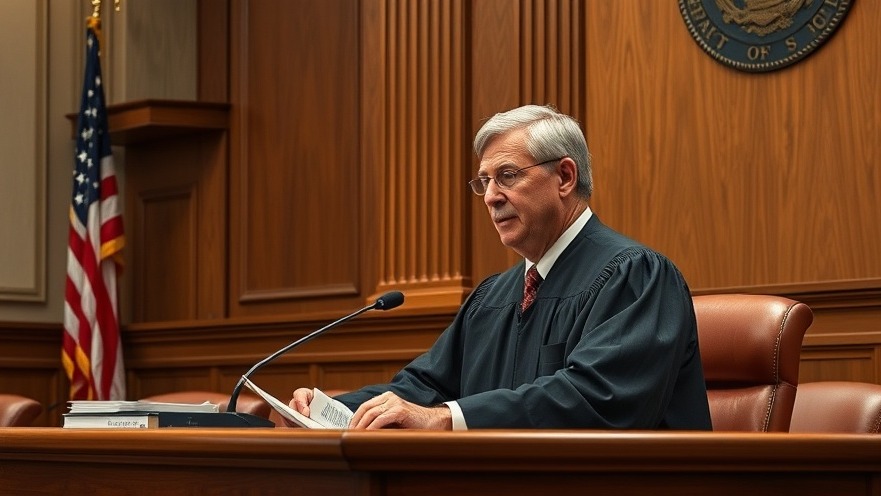
A Critical Stay of Execution: Robert Roberson's Case Revisited
In a groundbreaking decision that comes as a relief to many in the criminal justice system, the Texas Court of Criminal Appeals recently blocked the execution of Robert Roberson, a death row inmate convicted of capital murder in 2003 for the tragic death of his two-year-old daughter, Nikki. Scheduled for execution on October 16, Roberson's case has raised significant concerns regarding the reliability of the forensic science used in his conviction, particularly the controversial shaken baby syndrome diagnosis. With the court's stay, Roberson's case is set to undergo additional scrutiny, potentially paving the way for a new trial that considers evolving medical evidence.
The Long Journey for Justice
Roberson has spent over 20 years on death row maintaining his innocence. His conviction came shortly after the death of Nikki, who was believed to have succumbed to shaken baby syndrome. However, in light of new scientific evidence illuminating the weaknesses of this diagnosis, Roberson's attorneys have contended that Nikki suffered from chronic health issues—namely undiagnosed pneumonia and inappropriate medications—which led to her tragic death. This claim aligns with findings from recent medical experts who argue that her death was not the result of abuse, but rather a medical mismanagement retained in the shadows of the court system.
Tensions in Texas Politics: The Judicial System Under Pressure
Roberson's case has become a focal point of controversy within Texas politics, highlighting the precarious balance between justice and political pressures surrounding capital punishment. Bipartisan groups of lawmakers have vocally advocated for Roberson, underscoring the need for a fair review of his case amidst calls for his execution from certain quarters, including Texas Attorney General Ken Paxton. A recent statement from State Rep. Jeff Leach emphasized the importance of truth and justice in a system that has repeatedly failed Roberson, hinting at broader implications for how Texas administers capital punishment.
The Impact of Revolutionary Legislation
Central to Roberson's case is Texas' 2013 junk science law, which allows for reconsideration of cases where the scientific basis for a conviction has been debunked. This law represents a crucial step towards reform in the judicial system that aims to prevent wrongful executions powered by discredited forensic practices. While states have grappled with the ethical implications of using outdated science in courtrooms, Roberson's legal team views this latest ruling as an opportunity to contest the validity of his original conviction based on now unsubstantiated medical opinions.
Future Implications and Societal Impact
The implications of the Court of Criminal Appeals' decision extend beyond Roberson's personal plight. It raises essential questions about the integrity of the criminal justice system, particularly as it functions within a realm influenced by evolving medical understanding. For advocates against the death penalty, Roberson's case could serve as a pivotal moment that catalyzes change in policies surrounding capital punishment—highlighting the necessity for a judicial process that is adaptable to new evidence and insights.
Conclusion: The Path Forward
With his execution now stayed, Roberson's case stands at a pivotal juncture. As the trial court prepares to hear new evidence, the stakes are high—not just for Roberson and his family, but for the very fabric of justice in Texas. The tension between finality and accuracy in judicial outcomes must be navigated with an unwavering commitment to truth, ensuring that every defendant receives a fair chance to contest their conviction. For those invested in the integrity of our judicial proceedings, this case will be one to watch closely as it unfolds.
 Add Element
Add Element  Add Row
Add Row 



Write A Comment